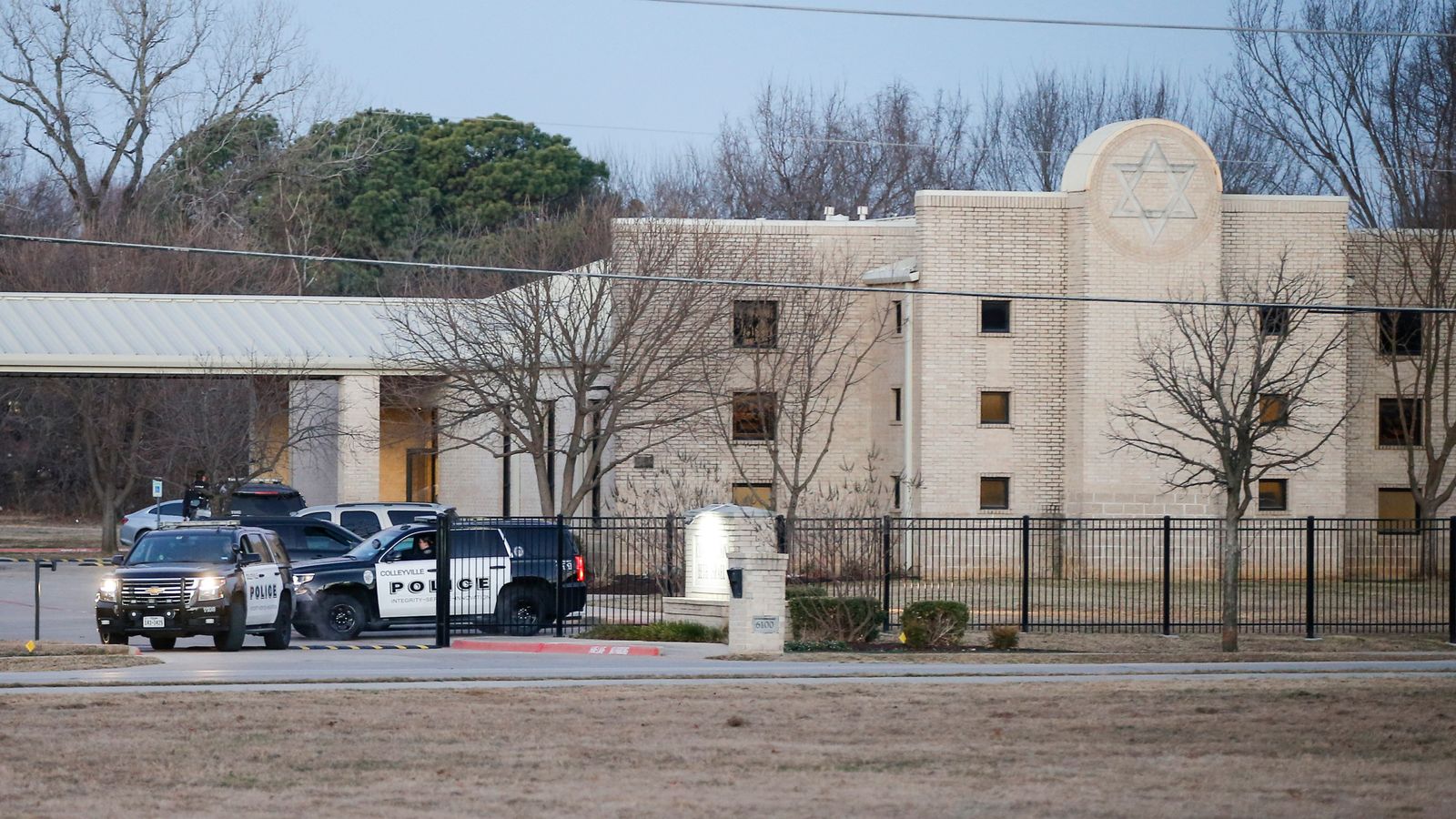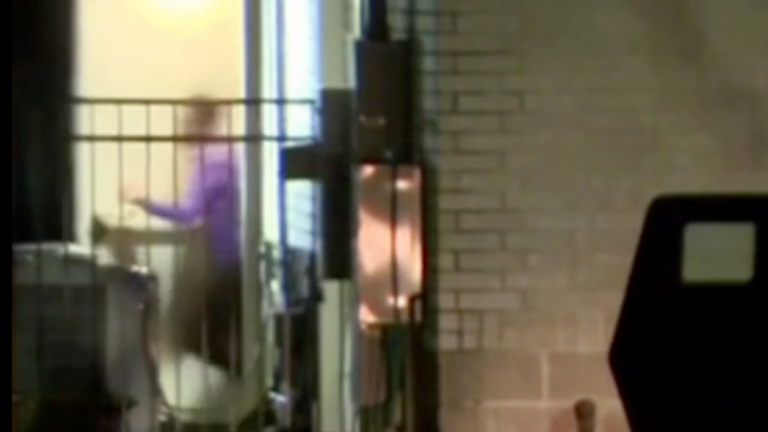Two teenagers who were arrested in Manchester over the Texas synagogue siege have been released without charge.
An address in North Manchester has been searched as part of an investigation by Counter Terror Policing North West.
The unit said they are “continuing to assist with the investigation which is being led by US authorities”.
“Overnight, constructive meetings with colleagues from the United States have taken place,” said temporary assistant chief constable Dominic Scally.
The arrests had been made in South Manchester on Sunday after a British man took four people, including a rabbi, hostage at Congregation Beth Israel in Colleyville, Texas.
Hostage-taker ‘had been investigated by MI5’
The 44-year-old suspect, named as Malik Faisal Akram, was shot dead by an FBI SWAT team following a 10-hour standoff.
He was checked against US government databases when he entered the country but did not raise any security flags, White House spokesperson Jen Psaki said.
This was despite the fact that he had been investigated by MI5.
The Security Service began looking into Akram in the second half of 2020 to assess whether he posed a security threat, a Whitehall source said.
The suspicion that had been raised about him was related to Islamist terrorism.
Akram ‘had been in prison three times’
Akram, who was from Blackburn in Lancashire, had also been in prison three times, between 1996 and 2012, for a range of offences including violent disorder, harassment and theft, Sky News understands.
He is said to have demanded the release of Pakistani neuroscientist Aafia Siddiqui, who was convicted of trying to kill US army officers in Afghanistan, and is in prison in Texas.
Sky News understands he arrived in the US via New York’s JFK International Airport shortly before the new year before buying the handgun he used in the siege.
US officials believe he had a visa.
Questions have now been raised into how he was able to enter the US with a criminal record and being known to MI5.
Akram was not deemed a ‘threat’ to national security
Its so-called “short-lead investigation” into Akram concluded that there was no “credible threat to national security at that time”, the source said.
It meant that no longer term investigation or further monitoring of Akram was carried out.
“He never reached the threshold” to justify further investigation, the source said.
The source declined to say how long Akram had been looked into other than to say that the investigation had lasted more than four weeks and either ended in the back half of 2020 or by early 2021.




